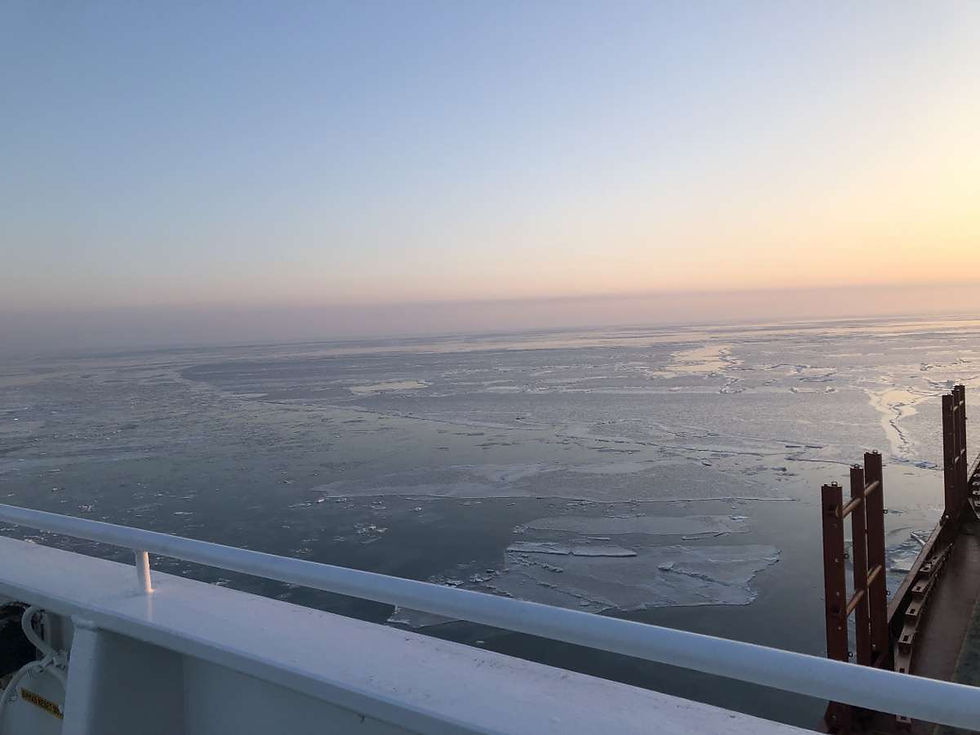Clause 11- Full and Correct Logs
- Jun 2, 2025
- 4 min read
The owner of a vessel is generally bound by the entries made in the log book by the ship's officers. The presumption is that the officer would not have made the entry unless he believed it to be true ( The Law of Seamen, Ch 7.11, citing The Georgian, 76 F2d 550 ( 1935, CA 5 Fla).
`
The veracity of the deck logs, as evidence, has been tested in numerous cases in English courts, as well as in arbitration cases. The declared weather conditions were examined in disputes involving collision, salvage, insurance matters, cargo damage, and even crew accidents ( Lloyds Law Reports are replete with such cases).In some cases, courts and tribunals have accepted meteorological evidence as a means of resolving disputed issues of fact. This is not a new matter- The Atheltarn [1934] 48 LIL Rep 83; The Dimitrios N. Ralias [1922] Vol 13 L.l.L Rep 363; The Iran Vojdan [ 1984] 2 Lloyd’s Rep 380.
In some instances, judges—independent of the weather reports—have drawn inferences based on the surrounding circumstances. A similar approach has been adopted in recent London arbitration proceedings, where arbitrators have inferred fouling or propeller damage from elevated slip levels observed during fair weather conditions. In such instances, direct evidence was not deemed necessary, and the arbitrators made their findings and corresponding awards for loss based on the circumstantial indicators.
In recent arbitration awards( see London Arbitration 15/23 and 32/22 and 23/21), the arbitrator held that:
· the master's remarks concerning current were exaggerated. It was with regret that the arbitrator concluded that the ship's records did not accurately represent the environmental conditions experienced, which was a breach of clause 11 of the charterparty. Notably, the Master was keep reporting strong adverse currents and neither WRC agreed with such an assessment of currents
· The weather, sea state and other factors as reported by the master were compared with the WRC values. The Masters’ weather reports were significantly above the WRC values of between 0.8 and 1.2 m for the combined sea. That persuaded the tribunal to find the noon reports repeatedly exaggerated on both sea and swell, in breach of clause 11
· As a consequence of the arbitrator’s findings, there was no need to further consider the logbooks, as the arbitrator was satisfied that the master failed to maintain a true and correct log in breach of clause 11. He exaggerated the wind and sea conditions recorded in the log from sailing from Recalada until 16 February.
It appears that the argument concerning a breach of Clause 11, specifically regarding the maintenance of proper logs, has been previously raised in SMA arbitrations. Accordingly, this is not a novel issue.
Chapter 22 of Time Charters (7th edition 2014), dealing with sailing directions and log, is relatively brief on this topic. Paragraph 22 A.7, citing US Law, cited several cases to highlight the need for the master to provide full and accurate logs to the charterer , and the correct log entries are particularly important to the charterer with respect to speed or performance claims. In the Largo ( SMA 1230) the panel found the log was not sufficiently complete to assist in evaluating the ship’s performance. In the Bertina ( SMA 3144) the logs contained entries that were erased or whited out and the panel drew adverse inferences from the inadequate log keeping.
In The Bertina, the panel stated that judicial recognition of the crucial roles logs play as contemporaneous records of a vessel's life is embedded in our jurisprudence, and the consequent adverse impact on the Owners' case occurs when the evidence establishes improper log-keeping. This seems to align as well with The Silver Palm, 94 F.2d 754, 762 (9th Cir. 1937), Court of Appeals, which is also cited by the authors in The Law of Seamen (4th edition, Chapter 7 ( para 13)- " original log book entries should not be altered by erasure and sustitution, as such alternation casts suspicion on the vessel's case..." Moreover, the failure to produce the logs created an inference that if the log had been produced it would not have aided the vessel's case.
Austin Dooley, dissenting, in another SMA arbitration- The Myrina SMA 3846- expressed the view that the panel was presented a log book written in one hand and unsigned by bridge watch-officers which by definition does not qualify under clause 11 that “…the Captain shall keep a full and correct Log of the voyage…, which are to be patent to the Charterers… when required.” Just like any vessel documents used in support of a claim, logs, if they do not pass muster as “full and correct,” which in my mind includes the concept of being original contemporaneous vessel documents, can be put aside in favor of more accurate representations of the facts of the matter
These observations are notable in several cases even today, as the Owners would avoid disclosing the logs on the premise that this creates unnecessary delay, but this was found to be a breach of clause 11. In another arbitration, this affected the Owners' "time bar" defence because the Owners could not withhold the logs and assert the claim was time-barred. They should have cooperated and disclosed the logs in a timely manner.
Both prior SMA awards and recent LMAA awards underscore the significance of maintaining comprehensive and accurate logs, noting that a failure to do so may constitute a breach of Clause 11.


